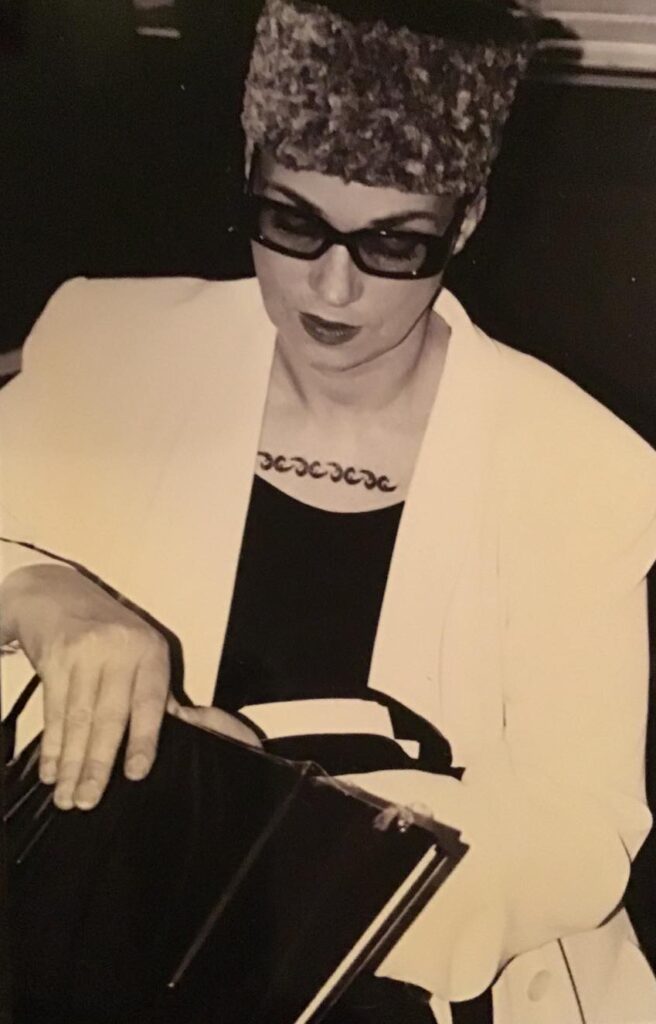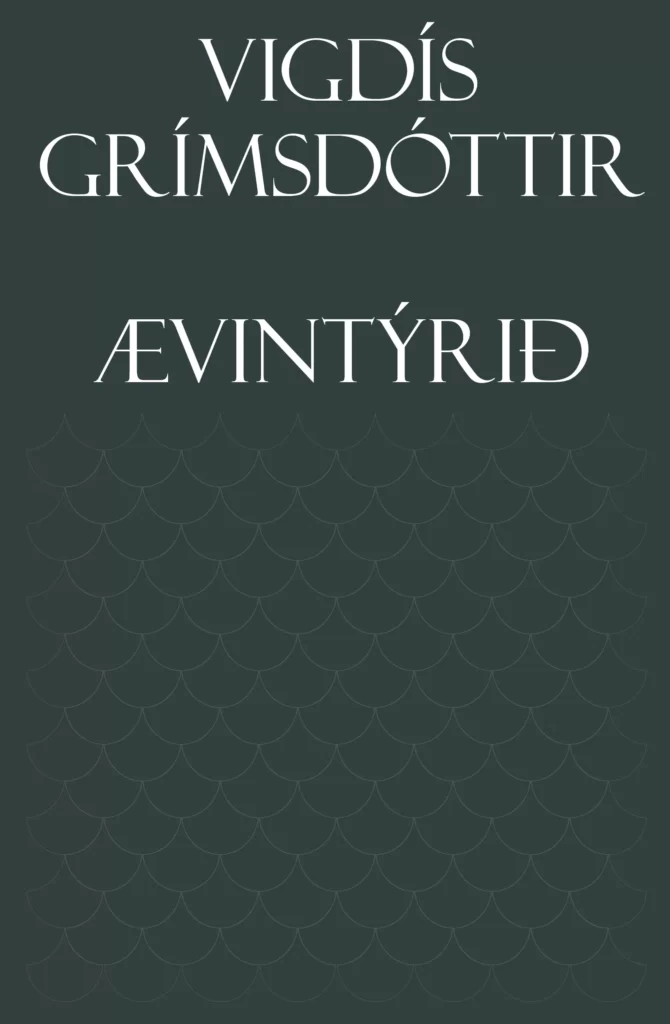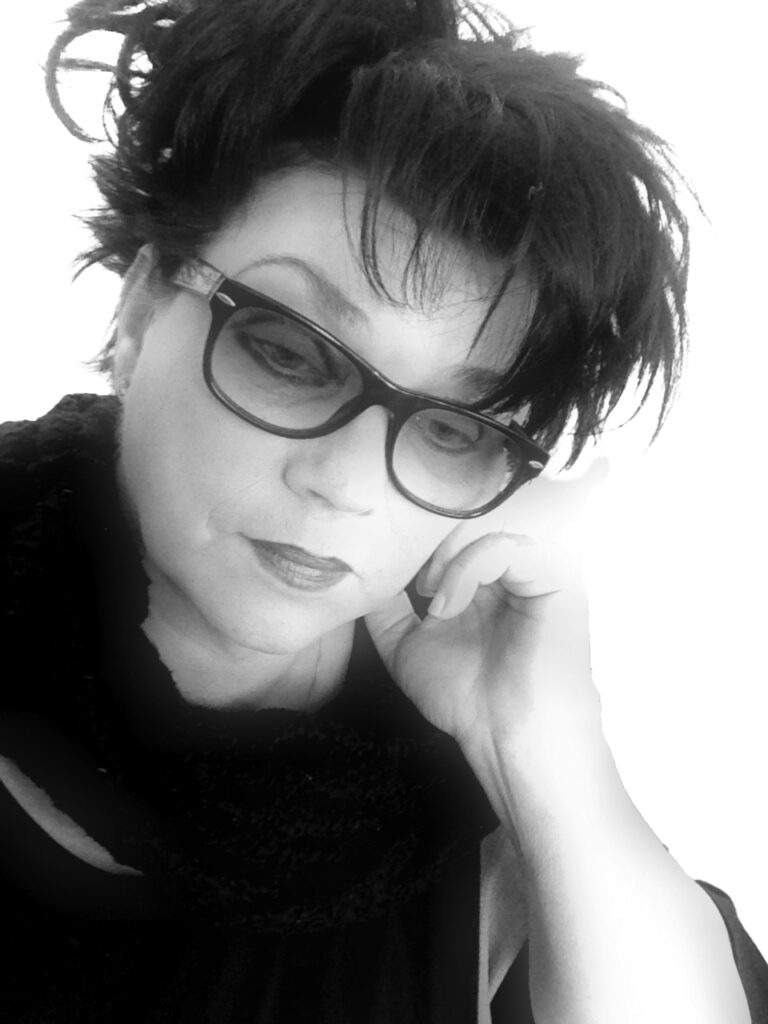Writer Vigdís Grímsdóttir uses the fantastical to reveal injustice.
Vigdís Grímsdóttir is a Fairy Queen, you read it here first! She lives in a two-storey boulder (OK a concrete house clad with pebble dash) and puts a spell on her guests. True story. Journalist Ingibjörg Rósa describes her encounter with the award-winning writer, whose queer novel spread ripples across Icelandic society in the 1990 – now she‘s joining the Christmas Book Flood with a fairy tale.
Writer Vigdís Grímsdóttir is an icon in Icelandic literature; her 1989 novel My name is Ísbjörg, I am a Leo, had a deep impact on a whole generation of women, including me, and was adapted for the stage of the National Theatre. She received the Icelandic Literary Prize in 1994 for her novel Grandavegur 7, which has also been adapted for theatre, and her 1987 debut novel, Kaldaljós was adapted for both stage and the big screen. She’s published short stories, poetry, and prose but this past decade she´s focused on memoirs, both her own and others’, until now that Vigdís is joining the famous Icelandic Jólabókaflóð (Christmas Book Flood) with a fantasy novella called Ævintýrið (The Fairy Tale). “I was tired of the exposure that comes with selling your books. I can do it, participate in book talks and signing events but it’s a special persona I use for that, it’s not me,” she explains in her soft voice. “I guess by writing other people’s memoirs, I was able to push someone else into the limelight and get a bit of rest from it myself.”
“What’s happening in Gaza now, and in Ukraine, it’s unbelievable, yet it’s happening.”
She has invited me to her warm and welcoming home hidden inside a stoney-faced building in Reykjavík. I stupidly left my phone at home so can’t record anything or even take photos as proof that I’m meeting with a Fairy Queen – how unprofessional! We talk and talk, drink coffee and munch on exotic chocolates. Vigdís is, per usual, all dressed in black, with shades and her signature red lipstick staying immaculate during the entire visit. Despite vaping and drinking coffee, her lipstick doesn´t smudge or stain, it must be magic.
I have to remind myself regularly why I’m here, to talk about her latest book. But since I’m given this rare chance to meet the Fairy Queen, I quickly want to discuss her older works too. Z: Love Story caused quite a stir and became an instant favourite in the queer society when it was published in 1996. As with most of Vigdís’ fiction, it’s artful and sexually revealing, exposing the love life of two sisters “where one is gay and the other lesbian,” Vigdís explains and chuckles.
Z: Love Story is one of two of the most iconic Icelandic novels that were published in the mid ‘90s (the other being Sú kvalda angist sem hugarfylgsnin geyma/Torments of Love in the Chamber of the Mind by Guðbergur Bergsson), and were essential gate-openers for a community that up until then had been put aside in Iceland – much like the hidden people – as a result of the HIV pandemic. These books made the queer culture visible at a vital point-of-no-return in time.
However, according to Vigdís, the timing wasn’t deliberate. “I don’t want to hear the word “brave”, I was just writing, that’s what I do and that’s when I’m the happiest. I don’t think about how it’s going to be perceived,” she says. So no, she didn’t think the time was right for a saucy queer story, she hadn’t been waiting to write Z: Love Story till it was the right time, or safe for her to publish because of her established status. “I just needed to write this and as it happened, I created this story at that moment. But you could perhaps say that I had a brave publisher who was willing to put it out there at that time.” The novel tells the story of two sisters who reveal and share their sexual adventures as they spend a night talking. But in 1996, when word got round that Vigdis was entering the famous Jólabókaflóð (most Icelandic books are published in the run-up to Christmas) with a novel about lesbianism, she was warned that half of her readers would abandon her. She even received threats and heard on live radio how her career was over because nobody would want to read about such matters. But they wanted to and did, and if she lost any readers, she achieved new ones. Z: Love Story is now considered a monumental icon in queer literature in Iceland.

But Vigdis has never held a special torch for the queer community, she finds it irrelevant what people’s gender or sexual orientation is. So, she’s never been keen on exposing her own private life, because she doesn’t really put a label on herself. She has two grown-up children, a handful of grandchildren, has been in love with both men and women and been living with her best friend, who happens to be a woman, for 25 years. “We´ve been friends much longer. But we made this choice. People don’t understand it, but it can be done, especially if something traumatic has happened to you; you can just make this decision. And that’s what we did, 25 years ago. I guess you could call me bisexual,” she says but changes it to “pansexual” after we discuss abandoning the idea of only two genders and falling for people regardless of gender. “See? Now I’ve learnt something new, we’re always evolving and changing and learning new things,” this 70 years, young spirit says.
Now, however, everybody’s talking about her “return” to the fiction writing scene. The Fairy Tale is a story about the odd friendship between Boy and Fish, in a country dictated by a beautiful queen who, along with her cabinet of gorgeous men, makes up the strangest rules and regulations for their citizens to live by. At first glance, The Fairy Tale is exactly that; a beautiful little fantastical novella, if not a tad futuristic story with elements of magic. But read it with a dash of realism and it becomes a terribly honest account of our world, a polemic in disguise. Where people are categorized and made to believe that injustice is law of nature. Where corruption thrives in fearmongering and authorities pretend to be doing their best, repeating foamy phrases of no substance, until they convince the complacent groups, with the most comfort, that the only choice out of all the bad choices is the best choice, smothering any innovation or ideas about a different world. While reading it, I kept seeing similarities to Icelandic current politics and society and it’s not until now I find out that the idea came to Vigdís during a visit to her daughter in Africa.
“I can’t stand this ideology of grouping people together, and that some groups should have less, or other groups should be in control. A society of various groups, it only leads to inequality.”
“Some of it is true, there was actually a dictator who banned fresh milk because his daughter’s company was importing powdered milk from Europe.” And a lot of the things that seem horrific and outrageous are actually happening now, in our world today, however fantastical they seem on paper. “What’s happening in Gaza now, and in Ukraine, it’s unbelievable, yet it’s happening. And we don’t care enough about it because they don’t look like us, they have different names and are different from us. So, they don’t matter as much.” That’s the harsh truth coming straight from the author’s mouth.

This is no ordinary interview. Well, it’s not an interview, it’s a conversation. It turns out Vigdis has a gift of getting people to talk as well – as Fairy Queens do; no wonder she’s authored a few memoirs. I tell her all sorts of things about myself and share with her my most secret ideas about a world without any borders or states, about Universal Basic Income being the only way forward and all-new infrastructure and systems built around the precondition that everybody should be happy. When I realise that she agrees with me, I get embarrassingly excited. “I can’t stand this ideology of grouping people together, and that some groups should have less, or other groups should be in control. A society of various groups, it only leads to inequality. When our world without borders will be reality, we’ll have a community, not groups,” Vigdís says with inspiration. But then we agree that most likely neither one of us will live to see such a world, there’s too much work to be done still.
It is sadly time to leave the Fairy Queen’s home and I reluctantly head for the door. Vigdís gives me a warm hug and a kiss on the cheek and suddenly I’m outside the huge boulder again. I’m confused, what time is it, didn’t I spend a lifetime in there? How can it only have been two hours? Was I dreaming? Did this really happen? Am I a character in her fantasy story?


